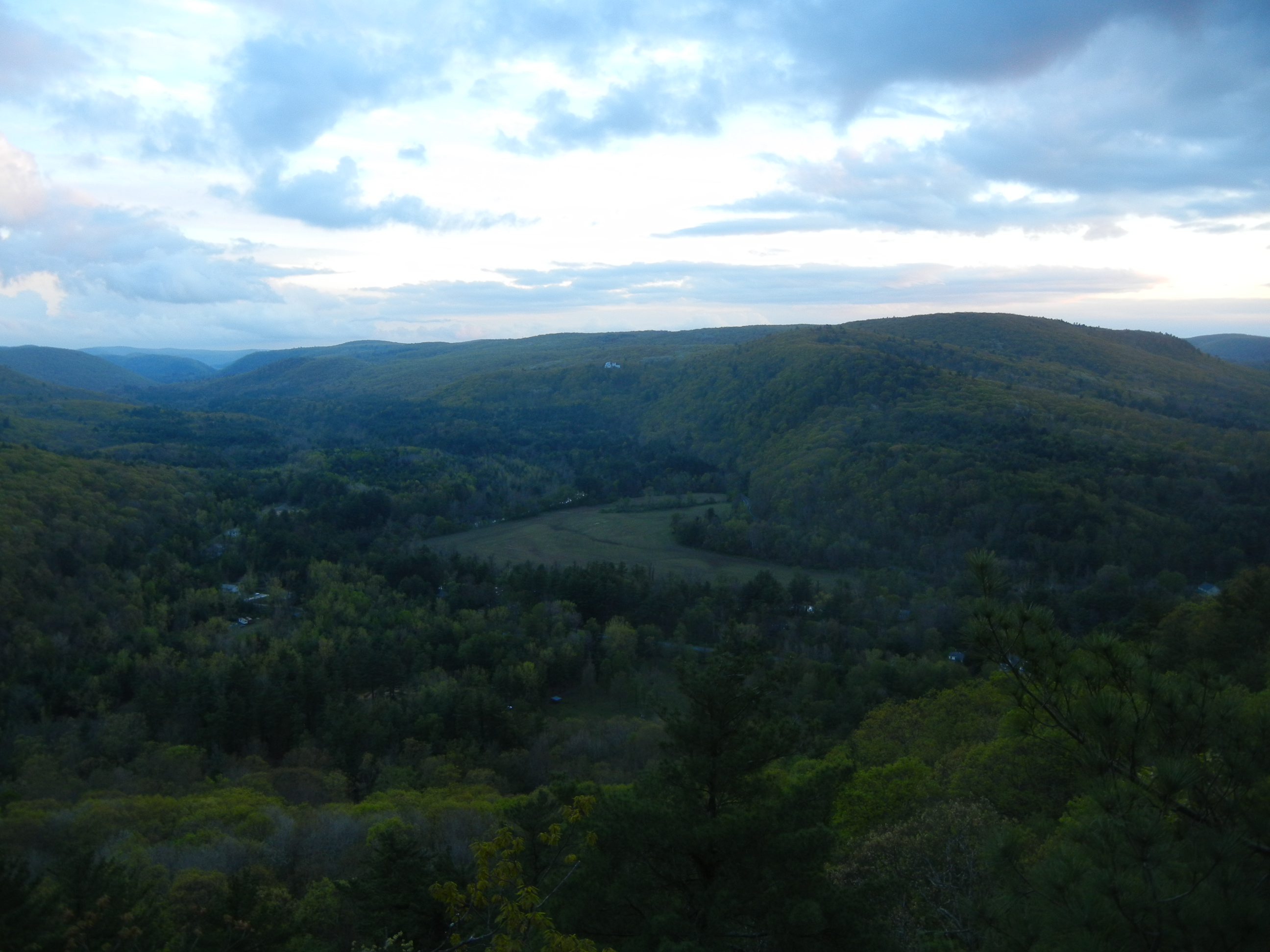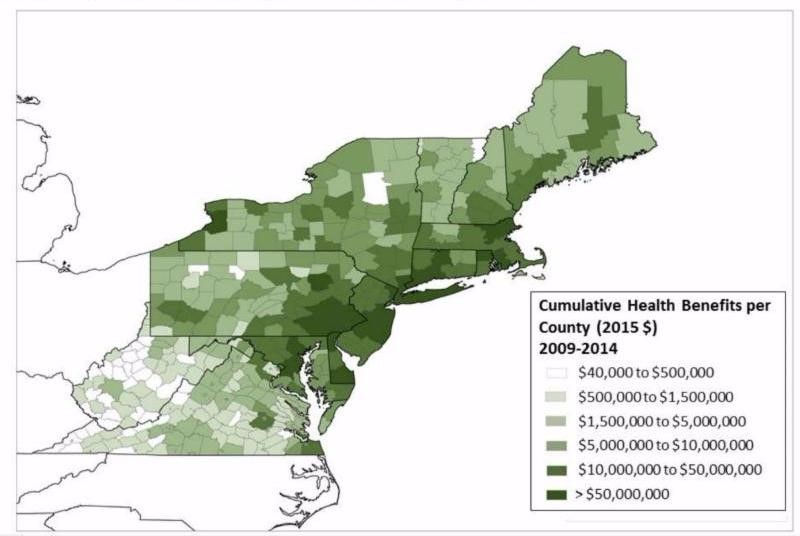
This is the second entry in our new Energy 101 series, designed to empower you to fight climate change. View last week’s post here: Energy 101: Shifting into High Gear Towards Our Green Future.
***
How much do you pay for the air you breath? Sounds like a funny question. After all, air is free, isn’t it?
Something that’s essential for life is too often taken for granted. When our air is polluted with dirty fossil fuel emissions, there are significant unseen consequences for the economy —- and your family’s health. That’s why we just wrote a letter to the editor praising a program that not only saves money, but saves lives.
How RGGI Works
The Regional Greenhouse Gas Initiative (RGGI for short, pronounced “reggie”) is an effort by northeastern and mid-Atlantic States (Connecticut, Delaware, Maine, Maryland, Massachusetts, New Hampshire, New York, Rhode Island and Vermont) to slow climate change by cooperatively working to reduce greenhouse gas emissions from power plants.
RGGI is a cap and trade program that motivates fossil fuel electric plants to keep their emissions in check. Each plant in the region must buy fuel cap credits at auction and cap their emissions. In Connecticut, proceeds from the auction support a special account for clean energy and efficiency programs. To date, Connecticut has raised over $100 million in RGGI funds for energy efficiency, renewables, and other economic benefit programs.
The RGGI Effect
RGGI is slowing our climate crisis: Since RGGI began in 2008, the program is on track to cut power plant emissions by 45 percent below 2005 levels by 2020 and in Connecticut greenhouse gas emissions have dropped nearly 30 percent since 2000 levels.
RGGI makes us healthier:
A new report by Abt Associates shows that in Connecticut, RGGI has saved up to 34 lives, prevented 1,950 lost work days, and saved over $300 million in health care costs.

Could RGGI be NGGI?
RGGI is the first market-based carbon trading program in the nation and has proven it can and should be a model for the entire United States. RGGI is creating jobs, saving money, keeping us healthy, all while controlling our greenhouse gas emissions to save our planet.
Just imagine what could be achieved on a national scale if RGGI was used as a model for the entire United States as a National Greenhouse Gas Initiative —- after all, pollution doesn’t stop at state borders.
Here at CFE/Save the Sound, we continue our efforts to protect current RGGI regulations and funding in order to keep Connecticut a leader in the green energy economy, protect our environment and keep YOU healthy.

